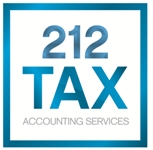If your business is operating as a sole proprietorship, or as a single-member limited liability company, you will need to file a Schedule C on your individual income tax return. This schedule shows the revenue and deductions for your business for the year and calculates its’ net taxable income. As experienced tax professionals, we have noticed an increase of Schedule C audits for business owners’ tax returns. If you currently have to file a Schedule C for your taxes, one of the best ways to be ready for the possibility of an audit is to learn everything you can about the auditing process. Throughout our years as tax accountants in NYC, we have learned the patterns of Schedule C audits conducted by both the IRS and NY State. Here is everything you need to know about Schedule C audits, so you can be prepared.
What is a Schedule C audit?
The IRS or NY State performs a Schedule C audit when they suspect discrepancy on a business owner’s tax return. If you receive a request for a Schedule C audit, you will be required to hand the respective agency all your bank and credit card statements, receipts, and explanations of all travel and entertainment expenses. It is important to keep all documents that pertain to your tax return for at least three prior years so that you can clearly verify what you claimed on the return.
A Schedule C audit is becoming more common because the IRS and NY State are finding several profit and loss statements that do not reflect the actual business done by a company. Co-mingling personal and business spending can also be the culprit for a potential Schedule C audit of your business. If you have placed all expenses in the appropriate categories and retained receipts of all of your transactions, your Schedule C audit should go smoothly. Keeping only your credit card statements is usually not enough. Accurate profit and loss statements, travel and entertainment logs, and information on your assets and liabilities will also be helpful in proving the legitimacy of your Schedule C return.
Who does a Schedule C audit apply to?
The only person who will be responsible in the case of a Schedule C audit is the business owner. In our experience as tax accountants, the IRS takes an interest in a business that shows a significant loss on a Schedule C filing. If a loss from business activities is shown, especially for more than 2 years in a row, the IRS and/or NY State is more likely to audit because they want to ensure that all expenses claimed were legitimate business deductions and that the owner is really trying to make a profit from the business. If it is found that the owner made erroneous expense claims on the Schedule C, or that he or she was exorbitantly and uselessly spending money so a loss can be shown, taxes, penalties and interest will probably be assessed once the audit is complete.
How can I avoid a Schedule C audit of my tax return?
If you own a business and file a Schedule C, it is important to be truthful about your income and expenses. There is a fine line between personal and business expenses, but keeping these expenses completely separate from each other can save you from have to go through an IRS or NY State audit. If you own multiple businesses, it is also VERY important to keep your income and deductions separate by entity. Keeping all expenses, profits, and losses completely transparent and accurately depicted on your Schedule C will help you to avoid an audit. Hire a knowledgeable C.P.A. firm, such as 212 Tax & Accounting Services, so that you can ensure your tax deductions and credits are being claimed correctly.
You should also keep all receipts and bank & credit card monthly statements organized and in a safe place. Holding onto every receipt that involved a business deduction may feel excessive, but it can be a lifesaver.
If the recent influx of IRS and NY State Schedule C audits is making you second-guess how you file your tax returns, or you are seeking any other type of assistance with your personal taxes and/or business finances, we can help. 212 Tax is a full-service C.P.A. firm, specializing in small business and individual tax and accounting services. Give our office a call today!
Myths About Tax Deductions: What You Can Legally Write-Off
Request a Consultation
We are able to work with your unique schedule including after-hour appointments, most weeknights, and weekends.
Call to action
Build Growth Opportunities with Extensive Business Financial Services
We serve clients in a range of industries, including hospitality, nightlife, real estate, legal, and medical.


